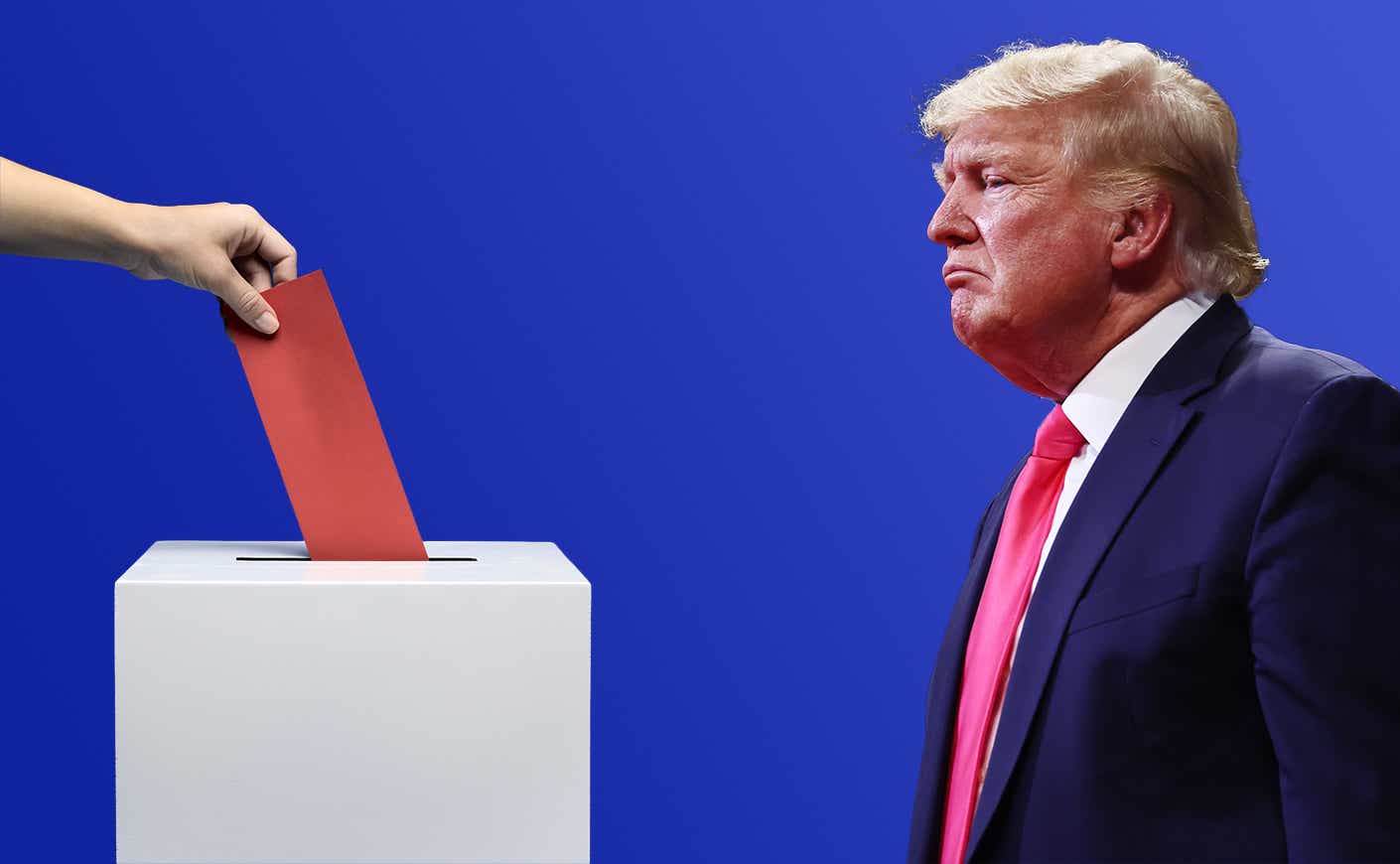In races across the country, Americans rejected election deniers hoping to win office for the express purpose of overhauling the electoral process. Here’s a closer look at the failure of the “America First” slate.
What is America First?
This year, a group of far-right Republicans, who falsely claim that the 2020 race was stolen from Donald Trump, ran for secretary of state or other influential positions. They hoped that by winning seats in key battleground states, they’d be able to tilt future elections, including the 2024 race, when Trump is expected to make another bid for the White House.
“It doesn’t really matter who’s running for assembly or governor or anything else. It matters who is counting the vote for that election,” Rachel Hamm, an America First candidate who ran unsuccessfully in California said at a forum hosted by the group.
State election officials were key to maintaining the integrity of the last presidential election, enduring intense pressure (oftentimes from within their own party, as was the case with Georgia Secretary of State Brad Raffensperger) to overturn the results of the race.
More than a dozen America First candidates ran in the primaries and a few were on ballots in November.
How did America First candidates do in the midterms?
In a word: poorly. Jim Marchant, an organizer of the slate who promised to “decertify” the 2020 Nevada result if elected, lost to Democrat Francisco Aguilar. Doug Mastriano, a state senator who led efforts to overturn election results in Pennsylvania, lost by a wide margin for governor. (In Pennsylvania, the governor appoints the secretary of state.) In Arizona, Mark Finchem, a state lawmaker who introduced a bill that would give the legislature power to reject election results, was defeated. The slate’s candidates also lost in the key states of Michigan and New Mexico. Its only victor was Diego Morales, who won his race in solidly Republican Indiana.
“People are tired of chaos,” Aguilar told the New York Times after his win over Marchant. “They want stability; they want normalcy; they want somebody’s who’s going to be an adult and make decisions that are fair, transparent, and in the best interests of all Nevadans.”
The race for secretary of state is not typically one on the marquee, but the 2020 election propelled the office into the spotlight. America First’s early momentum put Democrats on high alert, and the party far outspent conservatives in those races, according to the NYT.
How did other election deniers perform?
While it’s reassuring that voters mostly rejected the candidates hoping to dismantle the bedrock of our democracy, election denying remains a problem that runs deeper than America First. A Washington Post analysis found that the majority of GOP candidates running for congressional or key state positions had either denied or questioned the results of the presidential election. From Kay Ivey, the Alabama governor who won re-election after asserting in a campaign ad that “the fake news, Big Tech, and blue state liberals stole the election,” to J.D. Vance, who has consistently cast doubt on the 2020 election results, and won a Senate seat in Ohio.
By the Post’s count, close to 300 of them were on ballots last week and many of them are running in districts where Republicans are expected to win. So far, nearly 175 have prevailed.









